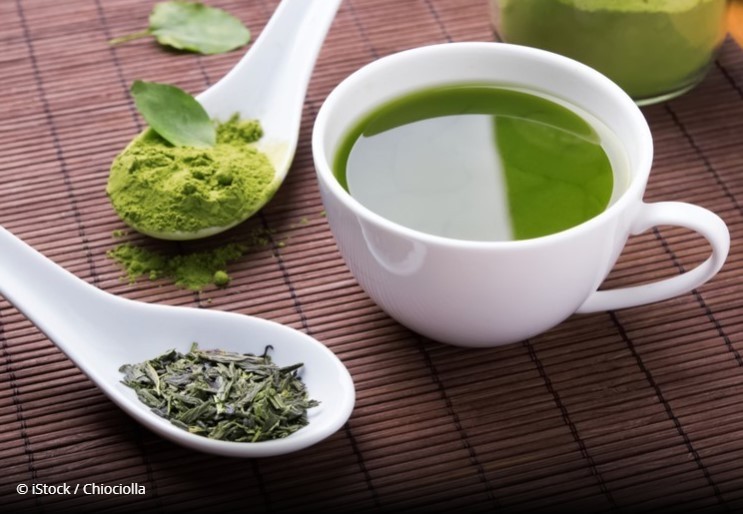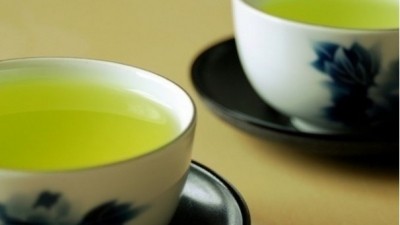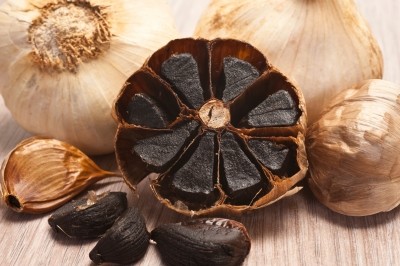Green tea extracts may promote oxidative stress, suggests researchers

The team believes the green tea polyphenols initially increase the oxidative process for a short time leading to a strengthening of defensive abilities and hence a longer life and greater fitness.
“That means green tea polyphenols, or catechins, aren’t in fact antioxidants, but rather pro-oxidants that improve the organism’s ability to defend itself, similar to a vaccination,” explains study leader Michael Ristow, Professor of Energy Metabolism at the Department of Health Sciences and Technology at ETH Zurich.
Along with colleagues from the Friedrich Schiller University in Germany, the team began experiments on the organism Caenorhabditis elegans, feeding the nematode worm low doses of the most abundant green tea catechins, epigallocatechin gallate (EGCG) and epicatechin gallate (ECG).
They found a concentration of 2.5 micrometres (μM) was enough to enhance health- and lifespan as well as stress resistance in C. elegans.
No immune system role?
The mechanism of action underpinning this observation was not via the immune system, the team writes but by activating genes that produce the enzymes superoxide dismutase (SOD) and catalase (CTL).
It is these enzymes that inactivate the free radicals in the nematode; they are essentially endogenous antioxidants.
In the long term, the re-wiring of certain pathways reduces fat content and extends health and lifespan.
“Here, we show that already 2.5 μM of EGCG and ECG, are sufficient to induce an extension of lifespan and increase stress resistance by adaptational mechanisms,” the study states.
“In this mitohormetic response, EGCG and ECG act initially as prooxidants by provoking a rise in reactive oxygen species (ROS).
“Since a transient ROS burst induces antioxidant defence mechanisms, EGCG and ECG display antioxidant properties in the long term.”
Despite the promising results obtained in the experiments, the researchers point to the low bioavailability of EGCG that raises the question of whether green tea catechins can reliably provoke beneficial effects in humans.
Dr Ristow also advises against taking green tea extracts or concentrates as he highlights at certain concentrations, it can become toxic.
High-dose catechins inhibit mitochondria to such an extent that cell death ensues, which can be particularly dangerous in the liver. Anyone consuming these polyphenols in excessive doses risks damaging their organs.
Sports and calories
Dr Ristow has previously demonstrated this mechanism in previous studies where sporting activity was shown to increase oxidative stress in the short term, thus improving the body’s defences.
Consuming fewer calories also has the same effect, as has been shown several times in animals. Mice fed a reduced-calorie diet live longer than those fed a normal, high-calorie diet.
Studies have pointed to the health benefits associated with green tea consumption, including a significant reduction in systolic blood pressure, and fasting glucose, as well as weight loss in type 2 diabetes patients, and in women with central obesity.
The most abundant polyphenols in green tea leaves are epigallocatechin gallate (EGCG), epicatechin gallate (ECG), epigallocatechin (EGC), and epicatechin (EC),
These polyphenols form 30–42% of the solid green tea extract. EGCG accounts for roughly 50% and ECG for 20% of the total catechin amount in green tea leaves.
Source: Aging
Published online: doi.org/10.18632/aging.203597
“Green tea catechins EGCG and ECG enhance the fitness and lifespan of Caenorhabditis elegans by complex I inhibition”
Authors: Jing Tian et al.
©iStock















